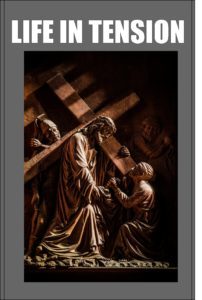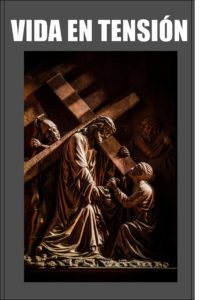Stephen W. Hiemstra's Blog, page 167
February 25, 2020
Tverberg Brings NT to Life
 Lois Tverberg. 2012. Walking in the Dust of Rabbi Jesus: How the Jewish Words of Jesus Can Change Your Life. Grand Rapids: Zondervan.
Lois Tverberg. 2012. Walking in the Dust of Rabbi Jesus: How the Jewish Words of Jesus Can Change Your Life. Grand Rapids: Zondervan.
Reviewed by Stephen W. Hiemstra
Much like language itself, the stories we read in the Bible are laconic–they do not tell us everything that we would like to know. The Bible’s laconic stories speak into life in many contexts with meaning and power. Understanding their original meaning can, however, be difficult without detailed knowledge about their original context. Lois Tverberg’s new book, Walking in the Dust of Rabbi Jesus, explores Jesus’ original context through a study of Jewish thought, both in the Hebrew Bible and other Jewish writings (29).
Introduction
Walking in the Dust of Rabbi Jesus is organized into three sections: (1) Hearing Our Rabbi’s Words, (2) Living Out the Words of Rabbi Jesus, and (3) Studying the Word with Rabbi Jesus. Chapters are brief and accessible enough to use devotionally. The chapters end in questions that can be used for small group discussion. Tverberg’s writing style is as engaging as her content is deep.
The Shema
In chapter 2, for example, Tverberg focuses on Jesus’ interpretation of the Shema. We know it as the great or double-love commandment (Matthew 2:35-43). Love God; love neighbor. Hebrew, Tverberg reminds us, is word poor and meaning rich. In Hebrew, Shema means both to hear and obey. The Jewish version of the Shema, which has been recited daily since before the first century, as a prayer is found in Deuteronomy 6:4-9. The second part of Jesus’ Shema (love of neighbor) is, however, found in Leviticus 19:18. The Hebrew understanding of love is covered in chapter 3 and the Hebrew understanding of neighbor is covered in chapter 4. If you really want to understand the parable of the Good Samaritan, Tverberg intimates, read 2 Chronicles 28:1-15.
Prayers Reflect Theology
As a seminarian, I was amazed how accessible Tverberg made matters of faith that I struggled to learn over the past several years. Citing Abraham Herschel, Tverberg writes: The issue of prayer is not prayer; the issue of prayer is God. How you pray reveals what you believe about God (125). Until I understood this, my prayers were simply random words. I read Herschel, but I understood Tverberg. Tverberg understands Jesus not only as Messiah, but as one steeped in Jewish wisdom. Confronted with two commandments in tension, which one do you obey?
Assessment
Who might want to read Walking in the Dust of Rabbi Jesus? This is an excellent text for devotions and for small group discussion. Pastors will find a number of chapters that will preach. Seminary students might find it an interesting introduction to Hebrew thinking. Any Christian serious about understanding their faith will enjoy and benefit from this book
Tverberg Brings NT to Life
Also see:
Vanhoozer: How Do We Understand the Bible? Part 1
Plueddemann Demystified Leadership Across Culture
Other ways to engage online:
Author site: http://www.StephenWHiemstra.net, Publisher site: http://www.T2Pneuma.com.
Newsletter: http://bit.ly/Lent_2020
The post Tverberg Brings NT to Life appeared first on T2Pneuma.net.
February 24, 2020
Mission Statement: Monday Monologues, Podcast on February 24, 2020
 Stephen W. Hiemstra 2020 (Ken Burtram Photography)
Stephen W. Hiemstra 2020 (Ken Burtram Photography)By Stephen W. Hiemstra
This morning I will share a prayer and reflect on the Mission Statement. After listening, please click here to take a brief listener survey (10 questions).
To listen, click on this link.
Hear the words; Walk the steps; Experience the joy!
Mission Statement: Monday Monologues, Podcast on February 24, 2020
Also see:
Monday Monologue On March 26, 2018
Other ways to engage online:
Author site: http://www.StephenWHiemstra.net, Publisher site: http://www.T2Pneuma.com.
Newsletter: http://bit.ly/Lent_2020
The post Mission Statement: Monday Monologues, Podcast on February 24, 2020 appeared first on T2Pneuma.net.
February 23, 2020
Fulfillment Prayer
 By Stephen W. Hiemstra
By Stephen W. Hiemstra
Father God, Beloved Son, Holy Spirit,
We praise you for your example in life.
In you, the Law and the Prophets are fulfilled, not in words, but in actions.
We are no longer without hope—good news is preached; broken hearts are healed; and liberty is proclaimed to the captives.
In you, there is jubilee; in you, there is comfort; in you, death is forever banished so that we may never mourn again.
Amen and amen
Fulfillment Prayer
Also see:
Believer’s Prayer
Other ways to engage online:
Author site: http://www.StephenWHiemstra.net
Publisher site: http://www.T2Pneuma.com.
Newsletter: http://bit.ly/Lent_2020
The post Fulfillment Prayer appeared first on T2Pneuma.net.
Oración de Cumplimiento
 Por Stephen W. Hiemstra
Por Stephen W. Hiemstra
Padre Dios, Amado Hijo, Espíritu Santo
Te alabamos a tí por tu ejemplo en la vida. En tí, la Ley y los Profetas se cumplen, no en palabras, sino en acciones.
Ya no estamos sin la esperanza—los buenos noticias se predican; los corazones rotos se sanan; y la libertad se proclama a los cautivos.
En tí, hay la jubileo; en tí, hay confort; en tí, la muerte se desterra para siempre para que nunca podamos llorar de nuevo.
Amén y amén
Oración de Cumplimiento
Ver también:
Oración del Creyente
Otras formas de participar en línea:
Sitio del autor: http://www.StephenWHiemstra.net,
Sitio del editor: http://www.T2Pneuma.com.
Boletín informativo: http://bit.ly/Lent_2020
The post Oración de Cumplimiento appeared first on T2Pneuma.net.
February 21, 2020
Mission Statement
 Do not think that I have come to
Do not think that I have come to
abolish the Law or the Prophets;
I have not come to abolish them
but to fulfill them.
(Matt 5:17)
By Stephen W. Hiemstra
In Matthew 5:17, Jesus offers an interpretative key that explains how to understand both his ministry on earth and his words in the Beatitudes. When Jesus said that he came to fulfill the Law and the Prophets, he means that he came to fulfill all of Old Testament scripture. In Jewish thinking, the term “law” brings to mind the first five books in the Old Testament—the Books of the Law (or the Pentateuch): Genesis, Exodus, Leviticus, Numbers, and Deuteronomy. The term “prophets” loosely refers to the remainder of the Old Testament. The implication is that Jesus’ own words have meaning in the context of scripture because they extend it.
The Books of the Law
The Hebrew word for poor in spirit (לְבַשֵּׂר עֲנָוִים; “lebaser anavim”) also translates as: poor, afflicted, humble, or meek (BDB, 7237). In the singular (“ana”) appears in the Books of the Law only in Numbers 12:3 which reads: “Now the man Moses was very meek, more than all people who were on the face of the earth.” (Num 12:3). Only Moses is described as meek and Moses’ relationship with God is described as exceeding that of a typical Old Testament prophet (Num 12:6-8).
“Ana” invites two important observations. First, being poor in spirit draws us closer to God—Moses close. God spoke to Moses directly, face to face, not in riddles or dreams (Num 12:6–8) which is intimacy with God rarely seen scripture since Abraham, who was described as a friend of God (Jas 2:23).
Second, if Jesus spoke Hebrew in delivering the Sermon on the Mount, then the first three Beatitudes could have been expressed in the same word, “ana”, which would be an emphatic statement of humility. The blessing associated with poor in spirit was to receive the kingdom of heaven while the blessing for meek was to inherit the earth. Taken together, being poor in spirit (or meek) in God’s eye gets you both heaven and earth, reminding us of creation (Gen 1:1) and meaning: everything.
The Books of the Prophet
“Ana” also appears in Isaiah 61:1–3, cited earlier. While the Books of the Prophet make many references to the poor, Isaiah 61 is quoted almost verbatim in Jesus’ call sermon in Luke 4:18–19 and stands out for at least two other reasons. The first reason is that the word, anointed, marks this passage as a messianic prophecy. While priests, prophets, and kings were all anointed as messiahs in the Old Testament, God himself does the anointing here. The second reason is that the phrase, “broken-hearted” (Isa 61:1), is a better analogy to “poor in spirit” than “poor” and it provides another reason to prefer “poor in spirit” over simply “poor” in interpreting this Beatitude.
Fulfillment
Jesus’ interpretative key is the verb, fulfill (πληρόω; “plero”), which generally translates as:
to bring to a designed end, fulfill a prophecy, an obligation, a promise, a law, a request, a purpose, a desire, a hope, a duty, a fate, a destiny (BDAG 5981, 4b).
In Matthew 5:17, fulfill is set in opposition to the verb, “destroy”, which is usually rendered as abolish. This verbal opposition is helpful because it underscores the dynamic element in fulfill—one abolishes something static simply by replacing it with a new item. Fulfilment clearly has an expectational element (or forward drift—τέλος in Greek). To fulfill the law is, not to replace it, but to extend it.
This idea of extending the law was new which is perhaps why Matthew offered more explanation and uses the word, fulfill, more than the other Gospel writers. In Jesus’ day, for example, Rabbi’s preached from the Law using the Prophets to interpret its meaning. This tradition might lead someone to say, perhaps, that the law had been “fulfilled” by correctly complying with it. However, the Gospel of Matthew sees prophecy fulfilled in the sense of living it out or taking the next step rather than the merely honoring the boundaries of existing law (Guelich 1982, 163).
In the Law and the Prophets, we find Jesus anchored in God’s creation and promises. In the word, fulfill, we find Jesus focused on the future giving Jesus’ mission both continuity and purpose.
REFERENCES
BibleWorks. 2011. Norfolk, VA: BibleWorks, LLC. . Brown-Driver-Briggs-Gesenius (BDB). 1905. Hebrew-English Lexicon, unabridged. Guelich, Robert. 1982. The Sermon on the Mount: A Foundation for Understanding. Dallas: Word Publishing.
Mission Statement
Also see:
Preface to a Life in Tension
Other ways to engage online:
Author site: http://www.StephenWHiemstra.net, Publisher site: http://www.T2Pneuma.com.
Newsletter: http://bit.ly/Lent_2020
The post Mission Statement appeared first on T2Pneuma.net.
Declaración de la Misión
 No piensen que he venido para poner fin a la Ley o a los Profetas;
No piensen que he venido para poner fin a la Ley o a los Profetas;
no he venido para poner fin, sino para cumplir.
(Matt 5:17)
Por Stephen W. Hiemstra
En Mateo 5:17, Jesus ofrece una clave interpretativa que explicar como a entender tanto su ministerio en la tierra como sus palabras en las Bienaventuranzas. Cuando Jesus dijó que ha venida a cumplir la Ley y a los Profetas, quiere decir que vinó a cumplir toda la escritura del Antiguo Testamento. En el pensamiento Judío, el término “ley” recuerda los primeros cincos libros en el Antiguo Testamento—los Libros de la Ley (o la Pentateuco): Génesis, Éxodo, Levítico, y Deuteronomio. El término “profetas” se refiere—más o menos—al resto del Antiguo Testamento. La implicación es que las propias palabras de Jesús tienen significado en el contexto de las escrituras por razón de que lo extienden.
Los Libros de la Ley
La palabra hebrea por pobre en espíritu (לְבַשֵּׂר עֲנָוִים; “lebaser anavim”) también se traduce como: pobre, afligido, humilde or manso (BDB, 7237). En singular (“ana”) aparece en los Libros de la Ley solamente en Números 12:3 que dice: “Moisés era un hombre manso, más que cualquier otro hombre sobre la superficie de la tierra” (Num 12:3). Solo Moises se describe como manso y la relación de Moises con Dios se describe como superior a la de un profeta típica del Antiguo Testamento (Num 12:6-8).
“Ana” invita a dos observaciones importante. Primero, ser pobre en espíritu nos acerca a Dios—a Moisés más cerca. Dios hablaba a Moises directamente, cara a cara, no en acertijos ni sueños (Num 12:6-8) lo cual es intimidad con Dios que es raramente visto en las escrituras después de Abraham, a quien se describió como un amigo de Dios (Jas 2:23).
Segundo, si Jesus hablaba hebreo al pronunciar del Sermón del Monte, entonces las primera tres Bienaventuranzas podrían haberse expresado usando la misma palabra, “ana,” lo cual seria un enfática declaración de humildad. La bendición asoció con los pobres en espíritu era a recibir el reino de los cielos mientras que la bendición asoció con manso era a heredar la tierra. Tomados en conjunto, ser pobre en espíritu (o manso) en los ojos de Dios te lleva tanto los cielos como la tierra, que nos recuerda la creación (Gen 1:1) y significa todo.
Los Libros de los Profetas
“Ana” aparece también en Isaías 61:1-3, citado anteriormente. Mientras que los Libros de las Profetas hacen muchas referencias a los pobres, Isaias 61 se cita casi literalmente en el sermón de llamado de Jesús en Lucas 4:18-19 y se destaca para no menos de dos otras razones. El primero razón es que la palabra, ungida, marca este pasaje como un profecía mesiánica. Mientras que los sacerdotes, profetas, y reyes fueron todos ungidos como mesías en el Antiguo Testamento, Dios si mismo hace la unción aqui. El segundo razón es que la frase, “los quebrantados de corazón“ (Isa 61:1), es un mejor analogía de “pobre en espíritu” que “pobre” y provee un otro razón a preferir “pobre en espíritu” a simplemente “pobre” en interpretar esta Bienaventuranza.
Cumplimiento
La clave interpretativa de Jesús es el verbo, cumplir (πληρόω; “plero”), lo cual generalmente traduce como:
para llevar a un fin diseñado, cumplir una profecía, una obligación, una promesa, una ley, una solicitud, un propósito, un deseo, una esperanza, un deber, un destino, un fatalismo (BDAG 5981, 4b).1
En Mateo 5:17, cumplir se opone al verbo, “destruir,” lo cual generalmente se traduce como abolir. Esta oposición verbal es útil lo pues subraya al elemento dinámico en el cumplimiento—uno elimina algo estático al reemplazarlo con un nuevo elemento. Cumplimiento tiene claramente un elemento de expectativa (o deriva hacia adelante—τέλος en griego). Cumplir la ley no es a reemplazarla sino extenderla.
La idea de extender la ley fue nueva lo cual es quizás la razón porque Mateo ofreció más explanación y usó la palabra, cumplir, más que los otros evangelios. En los días de Jesús, por ejemplo, el rabino predicó de la ley usando los profetas para interpretar su significado. Esta tradición podría llevar algunos a decir, tal vez, que la ley se había “cumplido” al cumplirla correctamente. Sin embargo, el Evangelio de Mateo ve la profecía cumplida en el sentido de vivirla o dar el siguiente paso en lugar de mero honrar la frontera de la ley existente (Guelich 1982, 163).
En la Ley y los Profetas, encontramos a Jesús anclado en la creación y promesas de Dios. En la palabra, cumplir, encontramos a Jesús enfocado del futuro que dar la misión de Jesús tanto continuidad y propósito.
Notas
1 to bring to a designed end, fulfill a prophecy, an obligation, a promise, a law, a request, a purpose, a desire, a hope, a duty, a fate, a destiny (BDAG 5981, 4b).
Referencias
Bauer, Walter (BDAG). 2000. A Greek-English Lexicon of the New Testament and Other Early Christian Literature. 3rd ed. ed. de Frederick W. Danker. Chicago: University of Chicago Press. .
Brown-Driver-Briggs-Gesenius (BDB). 1905. Hebrew-English Lexicon, unabridged.
Guelich, Robert. 1982. The Sermon on the Mount: A Foundation for Understanding. Dallas: Word Publishing.
Declaración de la Misión
Ver también:
Gospel as Divine Template
Otras formas de participar en línea:
Sitio del autor: http://www.StephenWHiemstra.net,
Sitio del editor: http://www.T2Pneuma.com.
Boletín informativo: http://bit.ly/Lent_2020
The post Declaración de la Misión appeared first on T2Pneuma.net.
February 18, 2020
Hollinger Sees Faith as Holistic
 Dennis P. Hollinger. 2005. Head, Heart, and Hands: Bringing Together Christian Thought, Passion, and Action. Downers Grove: IVP Books.
Dennis P. Hollinger. 2005. Head, Heart, and Hands: Bringing Together Christian Thought, Passion, and Action. Downers Grove: IVP Books.
Review by Stephen W. Hiemstra
My latest writing project, Living in Christ, focuses on ethics, which focuses on what do in response to our faith. This project could be seen as my life’s finally being written down, but in fact today’s church finds ethics unusually hard to cope with. Some church specialize in great worship with great musicians making a regular appearance; others are way out there on social action being involved in every demonstration at the local seat of government; still others have are deep into theology and invite notable speakers are on a regular basis. Relatively few churches have a lot of young people in attendance or conduct a lot of baptisms, suggesting that the division of labor among the churches is not aiding the evangelistic mission of the church (Matthew 28) and may actually be a hinderance.
Introduction
In his book, Head, Heart, and Hands, Dennis Hollinger observes:
“Taken alone, thought, passion, and action render a fragmented faith that only further engenders a fragmented self and a fragmented church.” (16)
“The problem is that most believers and Christian organizations or movements have accentuated one dimension to the neglect of the others.” (9)
A fragmented self lacks direction; a fragmented church cannot reflect the image of God in a society wounded by record suicides, drug overdoses, and declining fertility rates and life expectancy.
Holistic Faith in Tension with the Times
The idea that Christian faith is a holistic faith that can transcend the circumstances of society seems today to be a remote possibility in a society conditioned to believe that anything can be achieved through a proper division of labor. In the modern period, economists have taught that dividing up a problem and allocated the different parts to specialists (professions) is the most efficient way to organize research, administration, production, and distribution. Thus, any enterprise that requires a holistic approach—as Hollnger sees faith—runs contrary to the spirit of the times. Is it any wonder that megachurch pastors, thinking like good CEOs, have no trouble with online, radio,/ and television ministries, but routinely have trouble with engendering discipleship?
Interestingly, the same problem afflicted the protestant churches after the Reformation as the balance between theology, spirituality, and action promoted by the reformers melted away in contests over doctrinal purity among the different denominations that evolved in later years (19). The megachurches today share much in common with the cathedrals established before the modern period.
Background and Organization
Hollinger is a past-president of Gordon-Conwell Theological Seminary where he also taught ethics. He graduated from Elizabethtown College, received a Master’s of Divinity from Trinity Evangelical Divinity School and a doctorate from Drew University. He did post-doctoral work at Oxford University.
Hollinger writes in ten chapters:
Fragmented Faith and Fragmented People
Christian Faith and the Head
Distortions of the Head
Christian Faith and the Heart
Distortions of the Heart
Christian Faith and the Hands
Distortions of the Hands
Head, Heart, and Hands Together: The Biblical Case
Head, Heart, and Hands Together: An Interdisciplinary Perspective
Head, Heart, and Hands Together: Implications and Challenges (xii)
These chapters are preceded by a preface and followed by notes.
The Biblical Case for Holistic Faith
Hollinger spills a lot of ink documenting weaknesses in the faith caused by fragmentary theology, spirituality, and practice, as he should. What is interesting to me, however, is how the Bible does not make these same errors in neither the Old or New Testaments. This struggle with fragmentation is nothing new. Consider the first passage that Hollinger cites—the Shema:
“Hear, O Israel: The LORD our God, the LORD is one. You shall love the LORD your God with all your heart and with all your soul and with all your might.” (Deut 6:4-5 ESV)
Nothing here is left out—heart, mind, and hands—as Hollinger notes (145-146). The most basic prayer in Judaism is holistic and is underscored by Christ himself (Matt 22:37) Combining this holistic passage with neighbor love, as Jesus does, does not subtract from its holistic nature. Hollinger cites a half dozen other passages from the Old and New Testaments, but one other stands out: Romans 1:20-32. He writes:
“If ever there was a passage that brings head, heart, and hands together, this is it. It is somewhat typical to read this text as a chronological movement from false thinking, to wayward heart, to debased moral actions.”(151)
Hollinger sees the ordering as less important than the realization that head, heart, and hands are inter-related and affect one another. In other words, when we sin (hands), we often turn around to justify what we have done (head) and start to believe that our sin is also actually good (heart). How many parents, politicians, and pastors have not opposed homosexuality only to change their views after a child or other close relative has announced that they were gay. This is an obvious example of the interaction between head, heart, and hands in practice.
Assessment
Dennis Hollinger’s Head, Heart, and Hands focuses on the need for the church to engender a holistic faith by linking good theology and heart filled worship with practical acts of service. Hollinger effectively argues this point biblically with supporting arguments from other academic fields, such as education and psychology. This is a very practical, deeply theological text of interest to pastors, lay people, and theologians written in an accessible style.
Footnotes
https://en.wikipedia.org/wiki/Dennis_Hollinger. https://www.gordonconwell.edu/faculty/senior/dennis-hollinger
Hollinger Sees Faith as Holistic
Also see:
Elliott: God’s Emotions Inform Our Emotions, Part 1
Other ways to engage online:
Author site: http://www.StephenWHiemstra.net, Publisher site: http://www.T2Pneuma.com.
Newsletter: http://bit.ly/Corner_2020
The post Hollinger Sees Faith as Holistic appeared first on T2Pneuma.net.
February 17, 2020
Poor in Spirit: Monday Monologues, Podcast on February 17, 2020
 Stephen W. Hiemstra 2020 (Ken Burtram Photography)
Stephen W. Hiemstra 2020 (Ken Burtram Photography)By Stephen W. Hiemstra
This morning I will share a prayer and reflect on the Poor in Spirit.
After listening, please click here to take a brief listener survey (10 questions).
To listen, click on this link.
Hear the words; Walk the steps; Experience the joy!
Poor in Spirit: Monday Monologues, Podcast on February 17, 2020
Also see:
Monday Monologue On March 26, 2018
Other ways to engage online:
Author site: http://www.StephenWHiemstra.net,
Publisher site: http://www.T2Pneuma.com.
Newsletter: http://bit.ly/Corner_2020
The post Poor in Spirit: Monday Monologues, Podcast on February 17, 2020 appeared first on T2Pneuma.net.
February 16, 2020
Prayer for the Poor in Spirit
 By Stephen W. Hiemstra
By Stephen W. Hiemstra
Oh dear Lord,
I give thanks that you are ever near to me—not too proud to linger with your servant and call me friend.
Bless me with your spirit of humility and generosity—generous in time, generous in friendship, and generous in sharing yourself.
Keep me safe from bad company; keep me safe from pious arrogance; keep me safe from my own sinful heart.
Let me always be ever near to you, now and always, through the power of your Holy Spirit.
In Jesus’ name, Amen.
Prayer for the Poor in Spirit
Also see:
Believer’s Prayer
Other ways to engage online:
Author site: http://www.StephenWHiemstra.net, Publisher site: http://www.T2Pneuma.com.
Newsletter: http://bit.ly/Corner_2020
The post Prayer for the Poor in Spirit appeared first on T2Pneuma.net.
Oración por los Pobres en Espíritu
 Por Stephen W. Hiemstra
Por Stephen W. Hiemstra
Oh querido Señor,
Doy gracias porque siempre estás cerca de mí, no demasiado orgulloso para quedarte con tu sirviente y llamarme amigo.
Bendíceme con tu espíritu de humildad y generosidad—generoso en tiempo, generoso en amistad, y generoso en compartir ti mismo.
Guárdame seguro de la mala compañía; guárdame seguro de la arrogancia piadosa; guárdame seguro de mi propria pecaminoso corazón.
Permíteme estar siempre cerca de tí, ahora y siempre, a través del poder de tu Espíritu Santo.
En el nombre de Jesús, Amén.
Oración por los Pobres en Espírit
Ver también:
Oración del Creyente
Otras formas de participar en línea:
Sitio del autor: http://www.StephenWHiemstra.net,
Sitio del editor: http://www.T2Pneuma.com.
Boletín informativo: http://bit.ly/Corner_2020
The post Oración por los Pobres en Espíritu appeared first on T2Pneuma.net.



